By Stuart Heaver
The regular weekend street protests in Hong Kong have spilled over into pitch battles in the middle of the working day in the city's busy financial district, as Carrie Lam's beleaguered government gives the police a free hand to impose a Beijing style crackdown on all forms of dissent.
There may be no tanks, but the People's Liberation Army (PLA) troops are already here, disguised as Hong Kong riot police as part of a concerted policy to impose Tiananmen by stealth and create a climate of fear.
It can’t be verified but riot police in full body amour looking like stormtroopers from a science fiction movie, wear masks, show no official ID and are heard speaking in Putonghua dialect.
They could be anyone.
The average height of Hong Kong police officers appears to have increased by about 10cm since July and photos circulated online by the Demosisto party, appear to show Hong Kong police mustered inside a PLA barracks.
Their primary job is to intimidate.
The tragic death last Friday, of student demonstrator, Alex Chow Tsz-lok, who fell from a multi-storey car park while fleeing police tear gas the previous weekend, presented an opportunity for Lam to call for reason and dialogue; to offer concessions and seek political solutions.
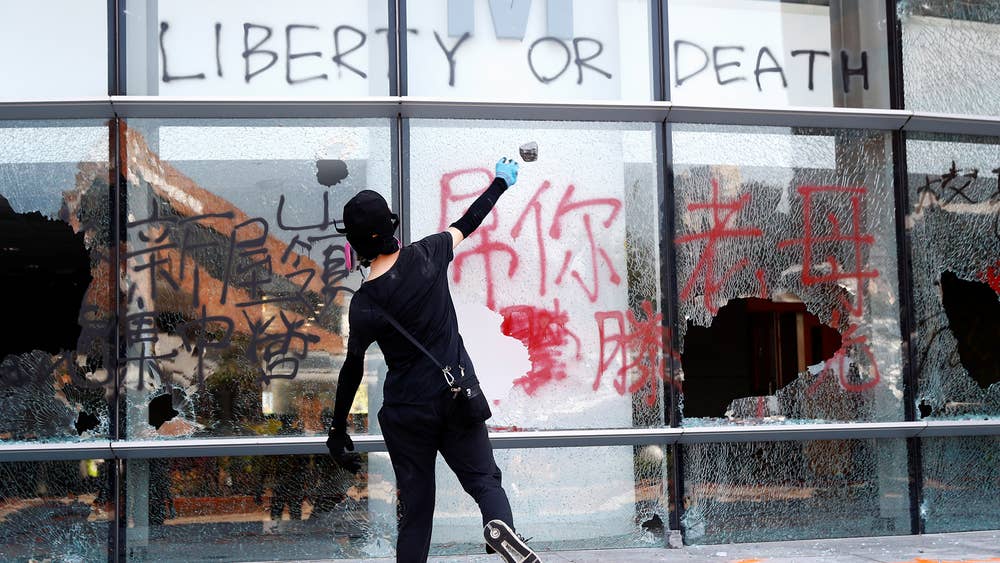


Instead of leadership, broken Hong Kong was offered only more lame condemnation and the promise of more crackdowns on the protesters she has described as “enemies of the people.”
Unfortunately for Lam, there is still widespread mainstream support for these so-called enemies, and Hongkongers are typically defiant.
During a peaceful unauthorized rally in Victoria Park earlier this month, which was subsequently broken up by police tear gas, I asked one attendee (not wearing black or a face mask) whether he felt intimidated or in fear for their safety.
“Of course, that is why we are here, once we stop coming, they have won,” he told me.
Lam’s uncompromising stance has only triggered new levels of anger and tension as the government provokes violence and then condemns it in a futile cycle which is destroying this once great city.
The resultant tense and febrile atmosphere has already led to a man being set on fire and an unarmed young protester being shot at close range by a police officer on Monday morning and left critically ill in hospital.
Carrie Lam announces anti-face mask law for Hong Kong protesters
There are widespread rumours and accusations of rapes, beatings and brutality in police custody which are impossible to verify.
The tragic death last Friday, of student demonstrator, Alex Chow Tsz-lok, who fell from a multi-storey car park while fleeing police tear gas the previous weekend, presented an opportunity for Lam to call for reason and dialogue; to offer concessions and seek political solutions.



Instead of leadership, broken Hong Kong was offered only more lame condemnation and the promise of more crackdowns on the protesters she has described as “enemies of the people.”
Unfortunately for Lam, there is still widespread mainstream support for these so-called enemies, and Hongkongers are typically defiant.
During a peaceful unauthorized rally in Victoria Park earlier this month, which was subsequently broken up by police tear gas, I asked one attendee (not wearing black or a face mask) whether he felt intimidated or in fear for their safety.
“Of course, that is why we are here, once we stop coming, they have won,” he told me.
Lam’s uncompromising stance has only triggered new levels of anger and tension as the government provokes violence and then condemns it in a futile cycle which is destroying this once great city.
The resultant tense and febrile atmosphere has already led to a man being set on fire and an unarmed young protester being shot at close range by a police officer on Monday morning and left critically ill in hospital.
Carrie Lam announces anti-face mask law for Hong Kong protesters
There are widespread rumours and accusations of rapes, beatings and brutality in police custody which are impossible to verify.
I have witnessed old folks collapsed in doorways receiving first aid for the effects of tear gas inhalation and parents holding wet towels to their children’s faces, rushing for shelter from the new brand of tear gas, manufactured in China.
It penetrates most gas masks and burns the lungs, causing some to cough up blood.
Bankers and office workers were tear-gassed during their lunch hour in Central’s affluent business district for two days running this week, and students are being attacked by police with baton rounds on campus.
Bankers and office workers were tear-gassed during their lunch hour in Central’s affluent business district for two days running this week, and students are being attacked by police with baton rounds on campus.
Legitimate election candidates have been arrested or attacked, or both, and peaceful assemblies and rallies attended by families and children are broken up by armed riot police dispensing tear gas.
It is misleading to portray this crisis as a confrontation between the government and rebellious youths.
It is misleading to portray this crisis as a confrontation between the government and rebellious youths.
It is a confrontation between a lame-duck government imposing the iron will of Beijing and millions of people in Hong Kong.
If anyone is the enemy of the people, it is Lam, Beijing’s stooge.
Anyone wanting to experience the sudden imposition of a police state and white terror, try a short break in Hong Kong.
Anyone wanting to experience the sudden imposition of a police state and white terror, try a short break in Hong Kong.
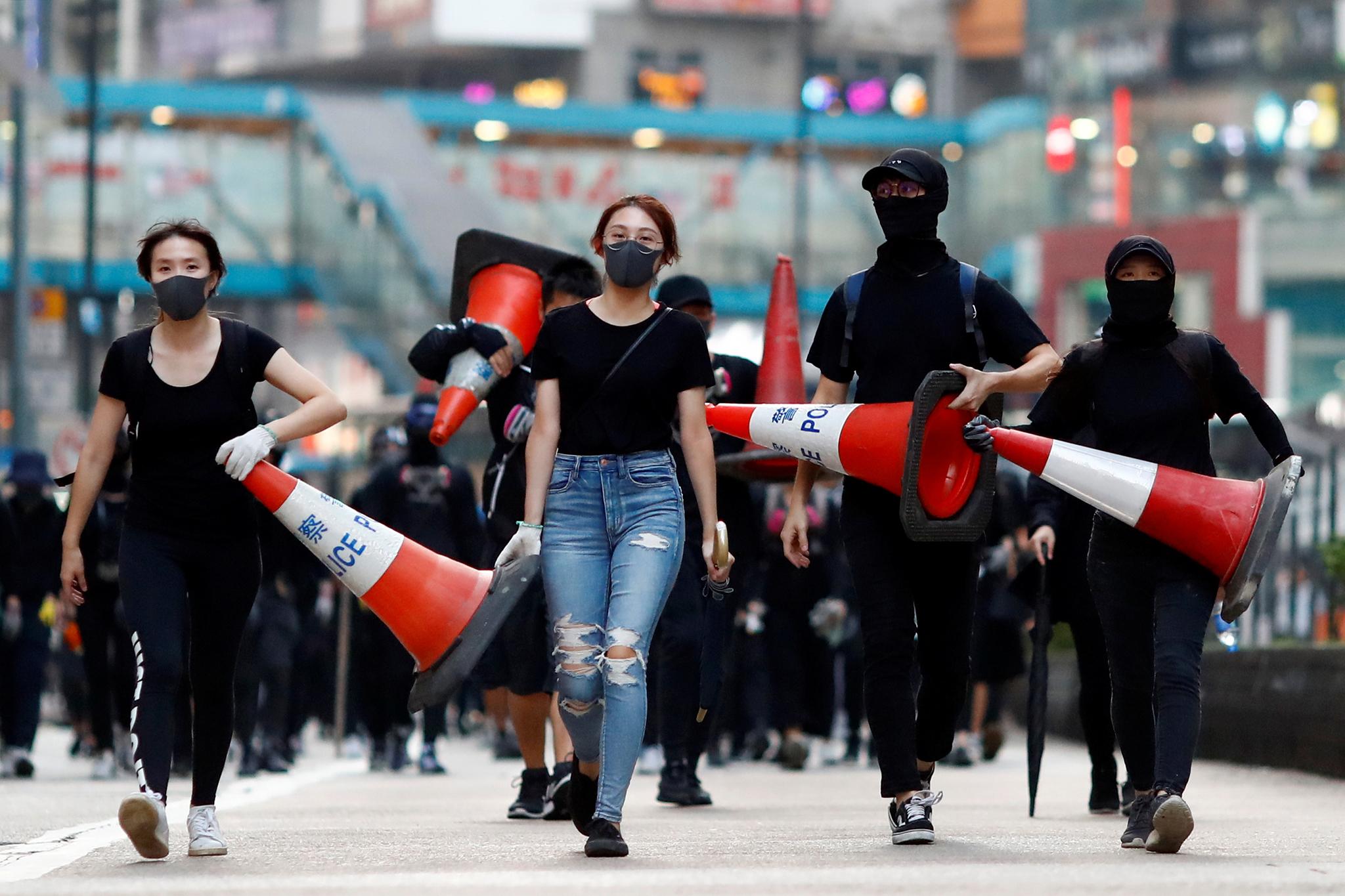




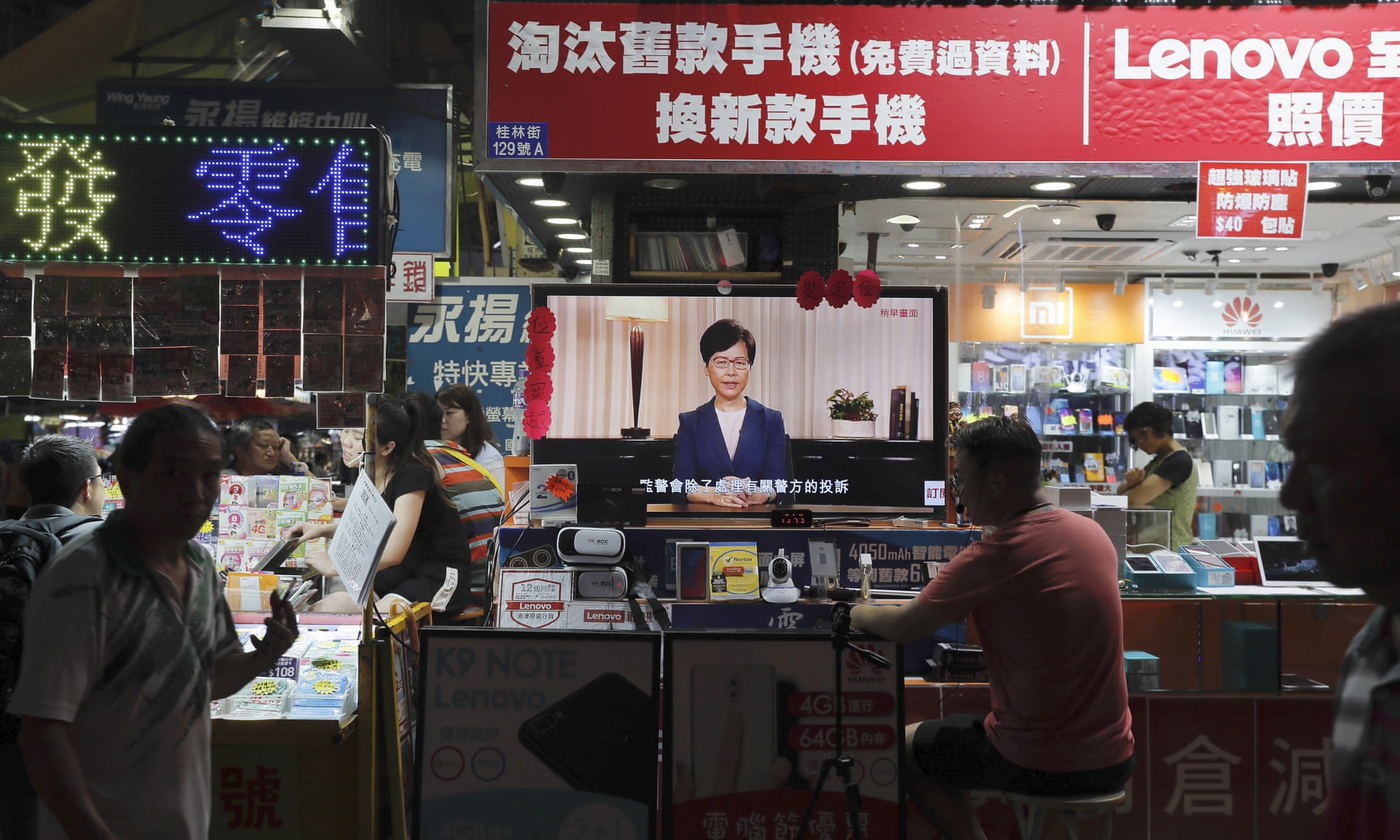 Carrie Lam is seen on TV in Hong Kong announcing the formal withdrawal of the extradition bill that had provoked months of protests.
Carrie Lam is seen on TV in Hong Kong announcing the formal withdrawal of the extradition bill that had provoked months of protests. 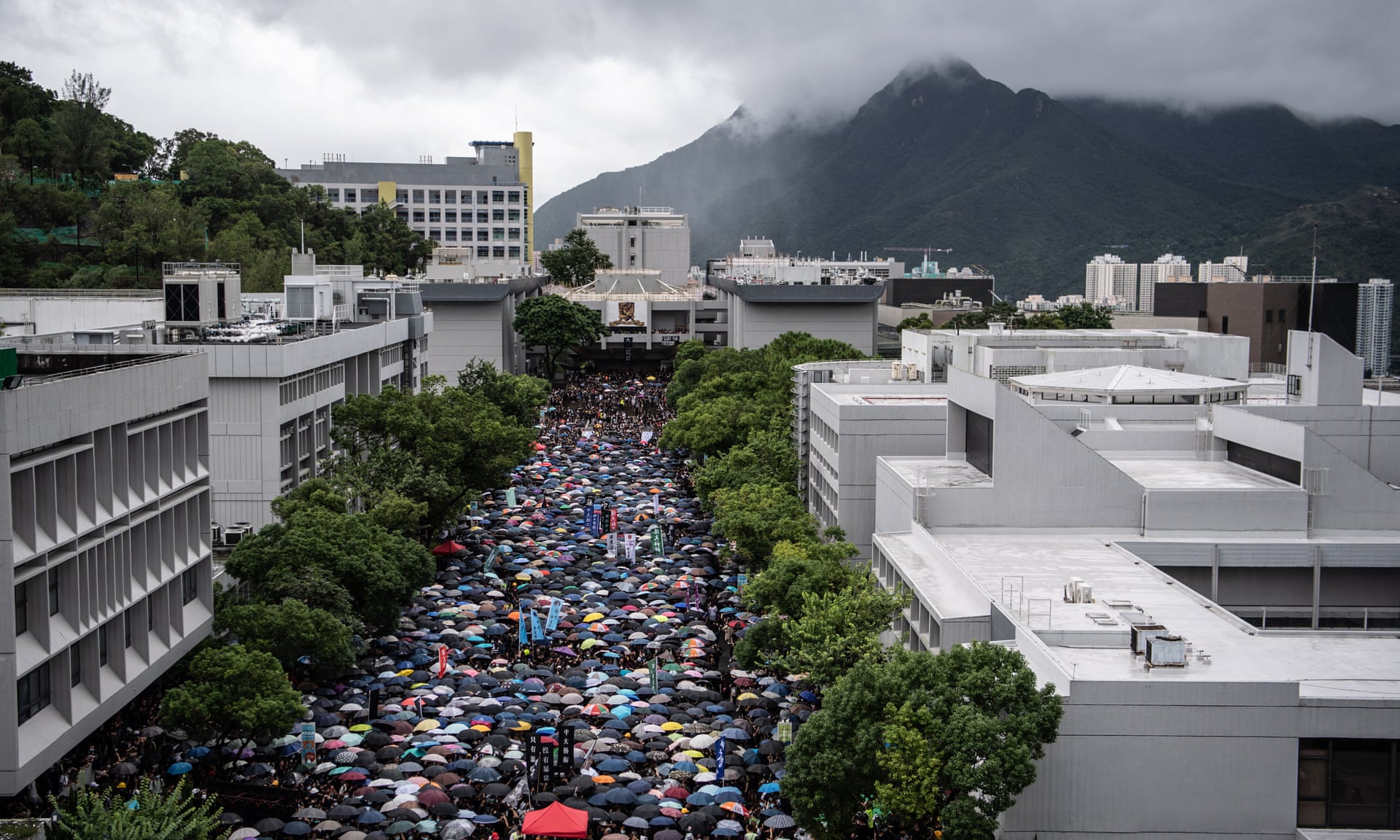
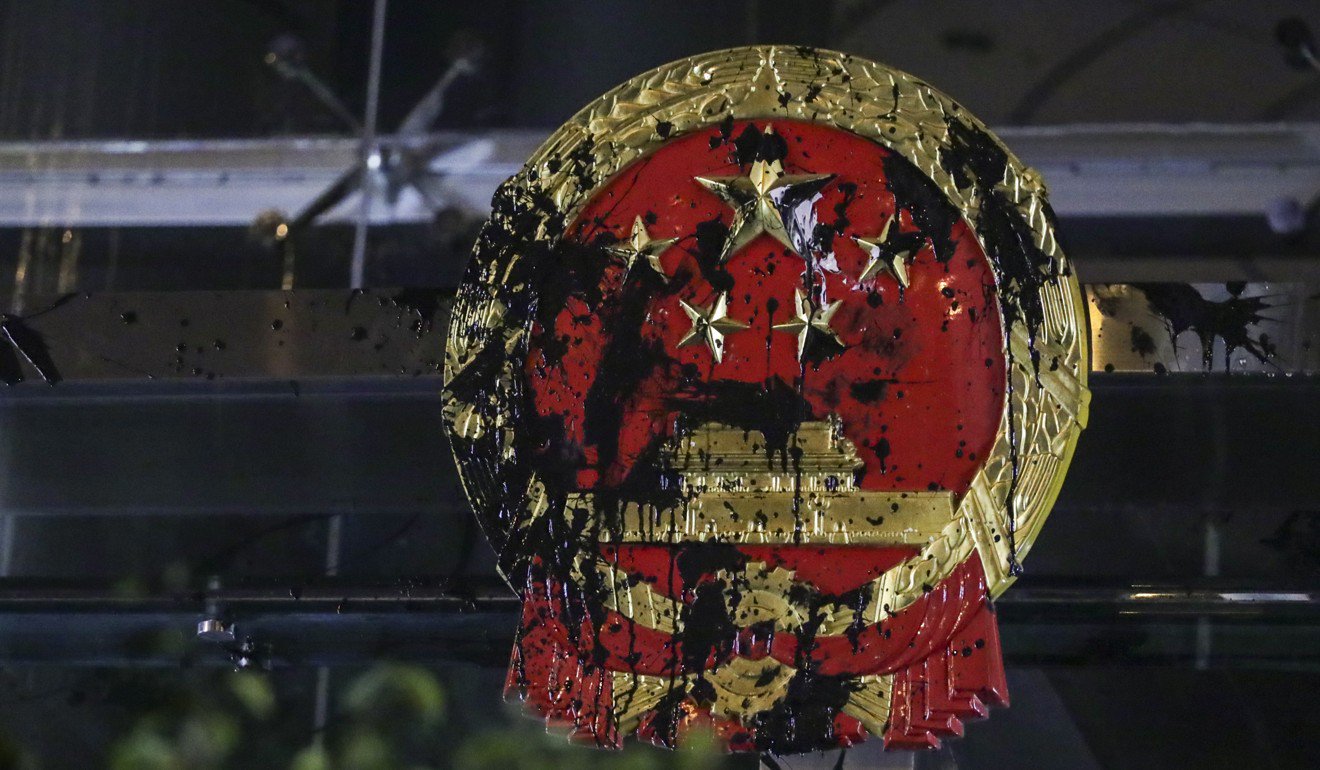
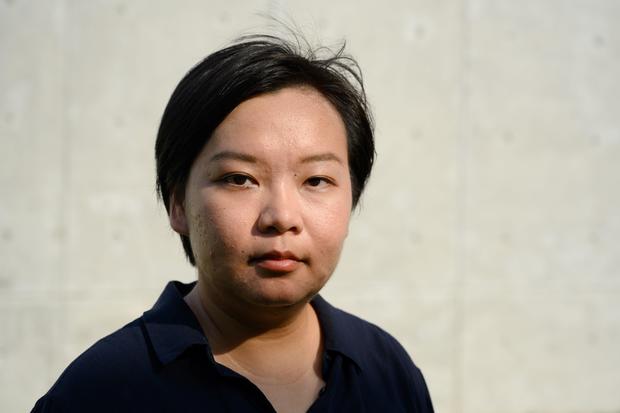 Bonnie Leung, vice convenor of the Civil Human Rights Front (CHRF), is seen during an interview in Hong Kong, August 20, 2019.
Bonnie Leung, vice convenor of the Civil Human Rights Front (CHRF), is seen during an interview in Hong Kong, August 20, 2019.